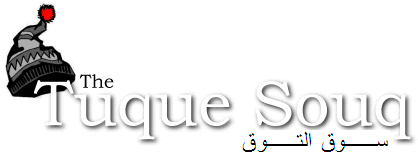 The Israeli ministry of education has announced a recall of a new Hebrew-language high school history textbook in which Palestinian claims of violent ethnic cleansing during the 1948 Arab-Israeli war are presented alongside the longstanding Israeli argument that 750,000 Palestinians simply decided to move to Lebanon all at once (and coincidentally during a war).
The Israeli ministry of education has announced a recall of a new Hebrew-language high school history textbook in which Palestinian claims of violent ethnic cleansing during the 1948 Arab-Israeli war are presented alongside the longstanding Israeli argument that 750,000 Palestinians simply decided to move to Lebanon all at once (and coincidentally during a war).The book, written entirely by Israeli scholars and earlier approved by the ministry, was thought to be the first Israeli school text to present any possibility of legitimate Palestinian claims to the land that is now Israel. But it seems Israeli high schoolers won't be getting all the facts this term.
The recall is an ironic twist on Israel's regularly scheduled textbook policy, in which the Israeli government and its legions of rightest supporters have long accused the Palestinians of employing textbooks with anti-Israel biases (or at least that present a worldview that diminishes prevailing Western historical foci), although it is well documented that most of the offending textbooks were written prior to the Oslo Accords by textbook companies in Egypt and Jordan.* (Still, Palestinian textbooks today, shockingly, do not go out of their way to celebrate the birth of Israel, either.)
CAFE OY VEY
 In related news, many coffee shops across Israel are refusing to serve Turkish coffee, owing to an ongoing diplomatic spat between Israel and Turkey. Turkish coffee is a popular brew in the Middle East in which finely ground coffee beans are boiled thick in a small pot and served with their dregs in Lilliputian cups.
In related news, many coffee shops across Israel are refusing to serve Turkish coffee, owing to an ongoing diplomatic spat between Israel and Turkey. Turkish coffee is a popular brew in the Middle East in which finely ground coffee beans are boiled thick in a small pot and served with their dregs in Lilliputian cups.The boycott will not affect the Palestinian territories, where like most Arab countries the coffee-related historical revisionism has long since renamed Turkish coffee as "Arabic coffee." Considering that the "Turkish" in Turkish coffee describes the origin of a vaguely unique brewing process (and is really more of a self-applied tribute to the colonial Ottoman-era coffee culture) and not the origin of a particular bean, the revision is considered justified.
As such, Israel should embrace alternative history in this case, especially now that Istanbul boulangeries have started to sell "culturally appropriated unleavened flat cakes" with apricots.
* For an exhaustive academic review of the campaign against Palestinian textbooks, read "The International Controversy Regarding Palestinian Textbooks" by Nathan J. Brown, professor of Political Science and International Affairs at George Washington University.

No comments:
Post a Comment